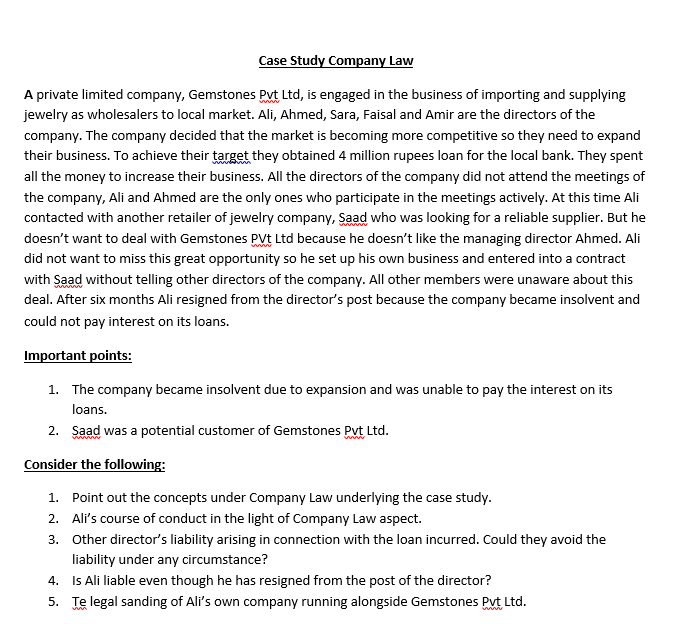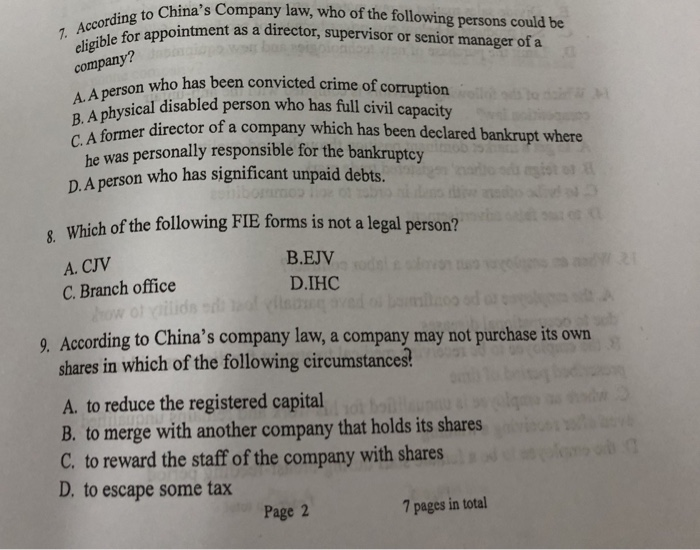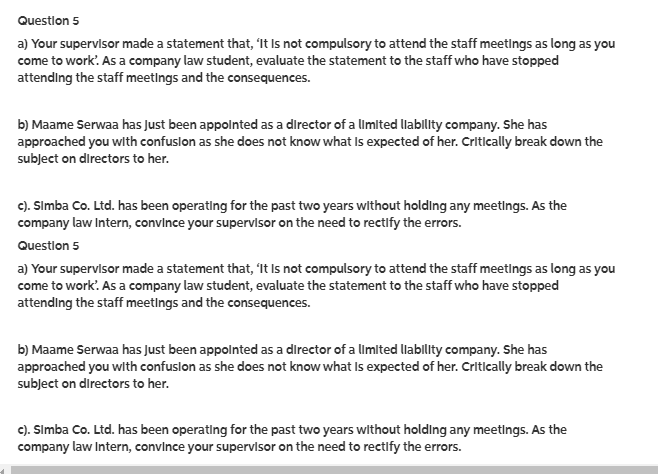



A potential client ('Joe ) has come to you and presented a set of facts . Draft a client "Evaluation letter" for Joe Summarizing the relevant facts and opinion of his case including each required component of a client correspondence and making sure employing proper formatting.
JOE v. AUTO WORKS
On July 14, 2005, Joe, age 64, a semi -retired bartender, entered Auto works to shop for some auto parts for his 1969 Studebaker. He had been in the had been in the store about 10-12 minutes when he located the set of spark plugs he wanted. Joe proceeded to the checkout stand to pay for the items. He does not recall how long he stood in the line to pay the cashier. He paid for the items, turned to go out of the store, and tripped over a small plastics, wastebasket which Joe states was in the aisle. He did not see the wastebasket at any time prior to the falling.
Joe suffered injuries in his neck, his shoulders. his left arm, his left hand. his lower back, and his left knee. He was treated primarily by a chiropractor who charged him a total of $ 3,843.80. He also went to an Orthopedic surgeon for an evaluation and had an MRI taken which showed a small bulge in the L8-L9 vertebras. The surgeon charged him $3,156.20 for this service. Joe continues to complain of pain in his neck, his left arm, lower back. and his left knee.
Factual Synopsis:
On July 14, 2005, Joe, age 64, a semi-retired bartender, entered Auto works to shop for some auto parts for his 1969 Studebaker. He had been in the had been in the store about 10-12 minutes when he located the set of spark plugs he wanted. Joe proceeded to the checkout stand to pay for the items. He does not recall how long he stood in the line to pay the cashier. He does not recall how long he stood in the line to pay the cashier. He paid for the items, turned to go out of the store, and tripped over a small plastics, wastebasket which Joe states was in the aisle. He did not see the wastebasket at any time prior to the falling.
Joe suffered injuries in his neck, his shoulders. his left arm, his left hand. his lower back, and his left knee. He was treated primarily by a chiropractor who charged him a total of $ 3,843.80. He also went to an Orthopedic surgeon for an evaluation and had an MRI taken which showed a small bulge in the L8-L9 vertebras. The surgeon charged him $3,156.20 for this service. Joe continues to complain of pain in his neck, his left arm, lower back. and his left knee.
Applicable Law:
Joes' cause of action against Auto works is for negligence. To establish a claim for negligence, there must be 1)a duty 2)breach of that duty 3) Causation and 4) damages. here the shopkeeper has a duty to keep his store safe for customers. The shopkeeper breached that duty to by leaving a wastebasket in the aisle. As a result of that breach of duty, Joe tripped and fell. Lastly, Joe suffered damages. Therefore, all of the elements of negligence are present in this case.
Joe can successfully maintain that the shopkeeper has a duty to his customers to provide a safe harbor for shopping. by placing the wastebasket in the aisle, the shopkeepers conduct fell below the standard of care for shopkeepers. Furthermore, the injuries suffered by Joe were directly and proximately caused by the negligence of the shopkeeper.
It could be argued by Auto works that Joe was treated excessively and that, as a result, the medical expenses did not all result from the accident. However, Joe sought treatment from a Chiropractor and reasonably relied upon the chiropractor's medical opinions. He felt some marginal benefit from the treatments and continued until released by that Chiropractor. Because he continued to haver pain, he sought the opinion pf another expert, an orthopedic surgeon. This. again, seems to be reasonable act.
we therefore conclude that Joe has a viable cause of action against Auto works for Negligence and recommend that joe seeks damages to include his medical bill costs in the sum of $ 7,500 and an additional amount of $15,000 for pain and suffering.
Case Study Company Law A private limited company, Gemstones Put Lid, is engaged in the business of importing and supplying jewelry as wholesalers to local market. Ali, Ahmed, Sara, Faisal and Amir are the directors of the company. The company decided that the market is becoming more competitive so they need to expand their business. To achieve their target they obtained 4 million rupees loan for the local bank. They spent all the money to increase their business. All the directors of the company did not attend the meetings of the company, Ali and Ahmed are the only ones who participate in the meetings actively. At this time Ali contacted with another retailer of jewelry company, Saad who was looking for a reliable supplier. But he doesn't want to deal with Gemstones PVt Ltd because he doesn't like the managing director Ahmed. Ali did not want to miss this great opportunity so he set up his own business and entered into a contract with Saad without telling other directors of the company. All other members were unaware about this deal. After six months Ali resigned from the director's post because the company became insolvent and could not pay interest on its loans. Important points: 1. The company became insolvent due to expansion and was unable to pay the interest on its loans. 2. Saad was a potential customer of Gemstones Pvt Ltd. Consider the following: 1. Point out the concepts under Company Law underlying the case study. 2. Ali's course of conduct in the light of Company Law aspect. 3. Other director's liability arising in connection with the loan incurred. Could they avoid the liability under any circumstance? 4. Is Ali liable even though he has resigned from the post of the director? 5. Te legal sanding of Ali's own company running alongside Gemstones Pvt Ltd.According to China's Company law, who of the following persons could be eligible for appointment as a director, supervisor or senior manager of a company? A. A person who has been convicted crime of corruption B. A physical disabled person who has full civil capacity C. A former director of a company which has been declared bankrupt where he was personally responsible for the bankruptcy D. A person who has significant unpaid debts. 8. Which of the following FIE forms is not a legal person? A. CJV B.EJV soon mug rancor C. Branch office D.IHC how of viilids and beat vilsing aved of bermilos ed or ontolyons set . 9. According to China's company law, a company may not purchase its own shares in which of the following circumstances! A. to reduce the registered capital B. to merge with another company that holds its shares C. to reward the staff of the company with shares of D. to escape some tax Page 2 7 pages in totalQuestion 5 a) Your supervisor made a statement that, 'It Is not compulsory to attend the staff meetings as long as you come to work. As a company law student, evaluate the statement to the staff who have stopped attending the staff meetings and the consequences. b) Maame Serwaa has Just been appointed as a director of a limited llability company. She has approached you with confusion as she does not know what Is expected of her. Critically break down the subject on directors to her. c). Simba Co. Ltd. has been operating for the past two years without holding any meetings. As the company law Intern, convince your supervisor on the need to rectify the errors. Question 5 a) Your supervisor made a statement that, 'It Is not compulsory to attend the staff meetings as long as you come to work: As a company law student, evaluate the statement to the staff who have stopped attending the staff meetings and the consequences. b) Maame Serwaa has Just been appointed as a director of a limited llability company. She has approached you with confusion as she does not know what Is expected of her. Critically break down the subject on directors to her. c). Simba Co. Ltd. has been operating for the past two years without holding any meetings. As the company law Intern, convince your supervisor on the need to rectify the errors.(a) An abuse cure is a legal right accessible to mistreated investors. It enables the investors to get an activity against the organization which they own offers when the direct of the organization has an impact that is harsh, unreasonably biased, or unjustifiably dismisses the interests of an investor. It was acquainted accordingly with, which had held that where an organization's activities were approved by a dominant part of the investors, the courts won't by and large meddle. Organization law truly depends on the guideline of greater part rule. Board and investor choices of organizations are generally controlled by a straightforward greater part vote. While this idea of lion's share rule is essential to organization law, it contains an innate danger of misuse. This danger was exacerbated by the standard in Foss v Harbottle. As per Brockett this standard gave 'that wrongs to the organization should be changed simply by activity taken by the organization in its own name, rather than the activity of individual individuals or gatherings of individuals, and that 'courts ought not meddle with the inside administration of organizations acting inside their forces.' However, unbending adherence to the standard regularly denied minority investors response against chiefs and dominant part investors. Therefore, the courts built up various 'special cases. In any case, various pundits have contended that the 'exemptions' for the standard in Foss v Harbottle are actually not special cases by any means, but rather circumstances where the standard basically can't apply. In expansion, various commonsense and legitimate challenges concerning the activity of the special cases have implied that moderately hardly any subsidiary activities have continued.' The principle troubles fixated on the impact of confirmation of the purportedly severe lead by the regular gathering of investors. On the off chance that compelling, the implied approval could deny the organization all in all, and henceforth minority investors, any privilege of activity against the chiefs. There were likewise issues brought about by the exacting models that should be set up under the steady gaze of a court may give relief. (b) Any agreement or other exchange implying to be gone into by an organization preceding its arrangement or by any individual for the organization before its development, might be sanctioned by the com-pany after its arrangement; and immediately the organization will get limited by and qualified for the advantage














